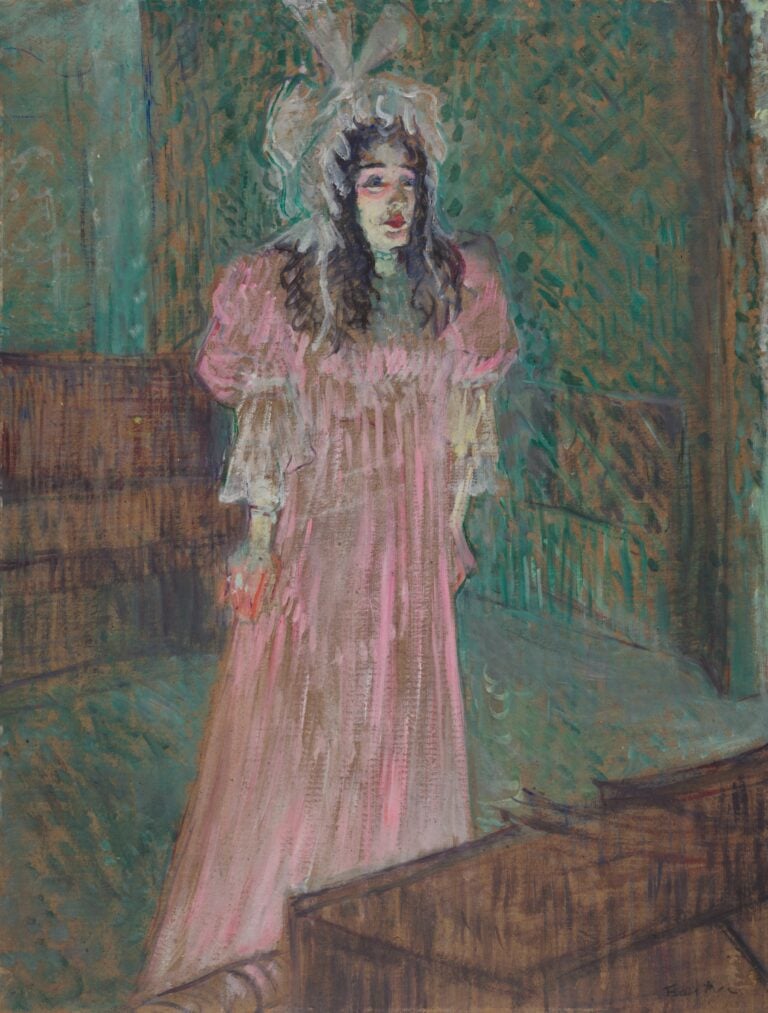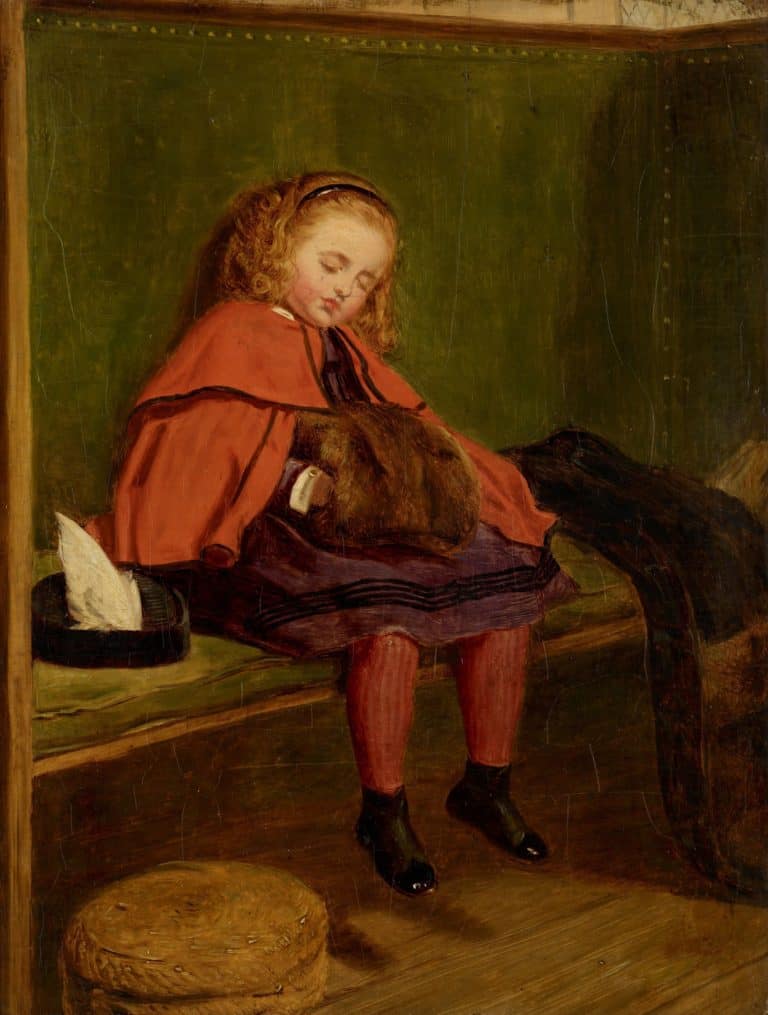Is OCD a Type of Autism?
Medically Reviewed By – Juliet Gustafson, LMSW

Believe it or not, OCD and Autism have a lot in common. The sheer nature of both conditions is very similar, as in forms of endless loops of thoughts and repetitive behaviours. Due to the similarities between OCD and Autism, it is not uncommon to misdiagnose one for the other. Moreover, through the years society began to express levels of confusion between the two. Thus, mental health professionals sought to answer the question of is OCD a type of Autism?
This post is all about Is OCD a Type of Autism?
What is OCD
Obsessive Compulsive Disorder is a mental health disorder affecting millions of people in the world. It consists of two fundamental components, obsessions and compulsions.
Obsessions are the thoughts and/or mental images that people “obsess” about. These obsessive and intrusive thoughts are common OCD symptoms that cause anxiety.
On the contrary, compulsions are repetitive behavior(s) performed to ease tension and provide temporary relief from obsessions. Compulsive behaviors are common among various anxiety disorders.
What is Autism
Autism spectrum disorder (ASD) or simply “autism” is a neurological condition that impacts nearly every aspect of daily life. Social interactions, the ability to communicate, learn and behave are all greatly affected by Autism.
Moreover, autism spectrum disorders is categorized as a “developmental disorder” due to its symptoms usually appearing within the first 24 months post birth.
Furthermore, autism is specified as a “spectrum disorder” due to its wide divergence between frequency, severity and type of symptoms associated with the disorder. Autistic people experience a range of symptoms based on the spectrum.
Autism is more common than you may think. In fact, according to the CDC, approximately 1 in 44 children in the U.S. is diagnosed with an autism spectrum disorders (ASD).
Interestingly, prevalence rates between males is much higher compared to females in regards to autistic children.
- 1 in 27 boys identified with ASD
- 1 in 116 girls identified with ASD
What is the Difference Between OCD and Autism?
Although Obsessive Compulsive Disorder and Autism spectrum disorder share various similarities and special interests such as symptoms, obsessive interests, ritualistic behavior and significant distress levels.
However, there are glaring differences between the two.
First of all, OCD is a mental health condition whilst Autism Spectrum Disorder is a developmental and neurological condition.
Moreover, Autism is a condition individuals (autistic people) are born with while OCD is a mental condition that develops over a period of time due to various factors and causes.
Another extensive difference between Obsessive Compulsive Disorder and Autism is the basis behind performing repetitive behaviors also known as compulsions.
Any individual diagnosed with OCD indulges in restricted repetitive behaviors in hopes of easing and tolerating feelings of stress and anxiety.
On the contrary, Autistic people perform repetitive compulsive behaviors in hopes of gaining sensory input and/or enjoyment.
This type of repetitive behaviors is called “stimming”, short for self stimulation.
Related Article(s) – OCD and Comorbid Disorders
What Are the Symptoms of Autism and OCD?
Believe it or not, OCD and Autism share common characteristics with each other.
They both include indulging in repetitive behaviors (for different reasons) and experience severe levels of anxiety.
People diagnosed with obsessive compulsive disorder (OCD) experience three distinctive factors that keeps the Obsessive Compulsive Cycle going.
(1) – OCD Obsessions – Thoughts, ideas and mental images that cause severe levels of anxiety, panic and stress in a person’s life.
(2) – OCD Compulsions – Physical and/or mental actions performed in order to reduce anxiety levels and stress caused from obsessions.
(3) – Intrusive Thoughts – People with OCD experience Unwanted, unexpected and random thoughts that create distress and anxiety.
Related Article(s) – The 5 Essential Symptoms Of OCD

Much like OCD, autistic people experience symptoms at an early age in which they persist and interfere with everyday quality of life.
Autistic people may experience severe sensory issues (sensory stimuli) such as over or under reactions to sounds, lights, touch, smell and taste. These sensory experiences cause pressure and stress.
Moreover, autistic individuals may experience both physical and mental conditions. These may include Unusual Movement Patterns, Devotion to Routines, tactile sensations, social cues, social difficulties and sensory processing.
ASD is a complex neurological disorder however there are common symptoms shared between patients.
Social Communication Differences- People with Autism can have difficulty with verbal and nonverbal communication due to differences in communication.
Differences in communication methods include
- Gestures (ritualistic behaviors)
- Eye contact (social difficulties)
- Facial expressions
- Recognizing intentions in others
- Repetitive Behaviors – Actions performed to sensory input and/or enjoyment.
Examples of Autistic repetitive activities
- Hand flapping (sensory overload)
- Twirling
- Repeating phrases
- Manipulating objects
- Repeatedly pushing buttons
Can You Have OCD and Autism?
Yes, you can have both OCD and Autism. OCD and Autism are highly Comorbid together, as in if you have one there is a chance of developing the other.
In fact, According to numerous studies, OCD is reported to co-occur with autism by as much as (17 – 37%).
Furthermore, the largest study of co-occurring OCD and ASD to date, we found that approximately 25% of young people with Obsessive Compulsive Disorder also had a diagnosis of ASD.
OCD vs. Autism in Adults
We have established earlier that ASD is a neurological disorder that starts within the first two years post birth.
Unfortunately, undiagnosed autism is very common. many patients with ASD go undiagnosed until adulthood when the expectation of independence and productivity results in a growing crisis for the autistic person.
Furthermore, 33.5% of participants had never received a psychiatric diagnosis (adolescent psychiatry) according to a recent study.
Common signs of Autism in adults
- getting very anxious about social situations (social deficits)
- finding it hard to say how you feel (need social skills training)
- having the same routine every day and getting very anxious if it changes
- not understanding social “rules”, such as not talking over people
- avoiding eye contact
This said, ASD can present differently in everyone!
Obsessive compulsive disorder in adults is very common. As we established earlier, obsessive compulsive disorder is a mental health disorder that develops over time (developmental disorders).
Common Examples of OCD in adults
- Frequently checking doors, locks and gas (repetitive behavior)
- Avoiding physical intimacy with your partner due to intrusive thoughts or obsessions
- asking for repetitive reassurance, saying things until they feel “right,” and having set rituals that you must complete (common ocd rituals)
This said, obsessive compulsive disorder (OCD) can present differently in everyone!
Related Article(s) – Three Evidence-Based Treatments For OCD
What is the Link Between OCD and Autism?
Neither obsessive compulsive disorder nor autism are anxiety disorders in the Diagnostic and Statistical Manual of Mental Disorders (DSM-5)
however, it is true that some symptoms of autism overlap with those of other disorders, and can look similar.
Furthermore, both disorders are associated with each other (obsessive compulsive disorder Comorbid with ASD). In fact, they are linked with each other by as much as 17% according to numerous studies.
Interestingly enough, both autistic people and people with OCD suffer from their respective conditions due to chemical imbalances in several brain regions. Specifically, low serotonin levels in the brain.
In fact, 25% of autistic cases are due to abnormal levels of serotonin. This is a common occurrence among mental disorders in which similar behaviors are associated with patients in general.
Moreover, both autism and OCD share common onset characteristics such as environmental and biological factors.
In addition, people with OCD or Autism are believed to have abnormal (more than normal) caudate nucleus matter in their brains.
This area of the human mind is responsible for many behaviors, habit formation and the ability to control behaviors (start and/or stop habits).
Autism and OCD Treatment
Treating autism spectrum disorder (ASD) and obsessive-compulsive disorder often involves a combination of therapeutic approaches and interventions. Here are some strategies commonly used for the treatment of autism and OCD:
1. Cognitive-Behavioral Therapy (CBT): CBT is a widely recognized and effective therapy for OCD. It helps individuals identify and challenge their obsessive thoughts and compulsive behaviors while learning healthier coping strategies. CBT can also be adapted to address the specific challenges associated with autism and OCD.
2. Medication: Medication may be prescribed to manage symptoms of OCD, such as intrusive thoughts or anxiety. Selective serotonin reuptake inhibitors (SSRIs) are commonly used for OCD treatment. However, medication should always be prescribed and monitored by a qualified healthcare professional.
3. Applied Behavior Analysis (ABA): ABA is a therapeutic approach often used for individuals with autism, but it can also be helpful for addressing OCD symptoms. ABA techniques can be adapted to target specific OCD behaviors and help individuals learn alternative responses. This is also considered a type of mindfulness training.
4. Exposure and Response Prevention (ERP): ERP is a specific type of CBT that is highly effective in treating OCD. It involves gradually exposing individuals to situations that trigger their obsessions while preventing the accompanying compulsive behaviors. This process helps individuals learn that their anxiety decreases over time without engaging in the compulsions.
5. Social Skills Training: For individuals with OCD and Autism , social skills training can be beneficial. It helps improve their ability to interact with others, manage anxiety in social situations, and develop appropriate social behaviors.
6. Sensory Integration Therapy: Sensory issues are common in both autism and OCD. Sensory integration therapy can help individuals with autism and OCD develop strategies to manage sensory sensitivities (intense interests) and regulate their responses to sensory input.
Final Thoughts on Is OCD a Type of Autism?
Although both OCD and Autism share a multitude of similarities, however they are not the same. OCD is a mental health disorder while Autism is a neurological one.
Moreover, Autistic individuals tend to show symptoms very early on in childhood while people with OCD slowly develop the disorder over time.
Both conditions are deliberating and hinder quality of life, however the answer is a bold no, OCD is not a type of Autism.
This post was all about Is OCD A Type Of Autism.





